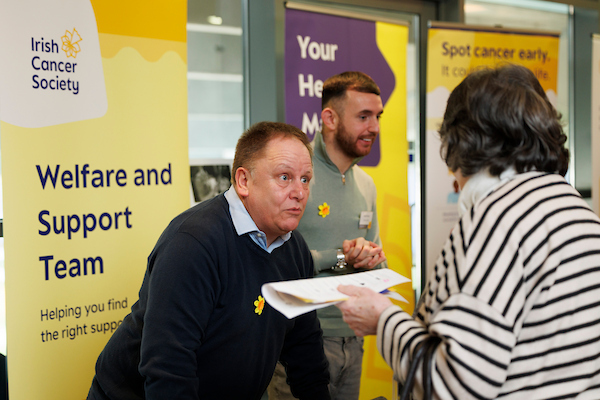Liver cancer
After treatment
What follow-up do I need?
No matter what type of cancer treatment you have, you will still need regular check-ups once it is over. This is called follow-up.
At first you might have follow-up appointments every 3 months and then 6 monthly. After this, if all is going well, it might follow-up may involve ultrasound surveillance. If any problems arise this will change.
You will also have the chance to ask any questions you have, and to let your doctor know if you are having any problems or finding it hard to cope.
Make sure you understand your follow-up plan and have a phone number to contact if you have any queries.
Follow-up may involve having blood tests and scans, such as MRI or CT scans.
Ask any questions you have, and to let your doctor know if you are having any problems. Tell them about any new symptoms, aches or pains you have, or if you are finding it hard to cope. It can help to write down what you want to say beforehand, so you don’t forget anything.
If you are between check-ups and have a symptom or problem that is worrying you, call your specialist nurse for advice or to arrange an earlier outpatient appointment if necessary.
If you become suddenly unwell and can’t contact your specialist nurse or hospital team, go to your GP or the emergency department at the hospital.
Why follow-up is important
It’s important to go to your follow-up appointments so your doctor can check for signs of the cancer coming back (recurrence) and help with any side-effects that you may have. They can also check for new side-effects that may develop after you have finished treatment. It is best to be aware of these as early as possible so that suitable treatment can be given.
Life after treatment
The end of treatment is a time when people often expect to feel relieved, happy and able to get on with life again, but it can take some time to adjust and for your body and mind to recover.
We have information to help you with:
- Side-effects
- Your feelings after treatment
- Living a healthy lifestyle
- Financial and practical matters
LACES after-treatment workshop

Join our Life and Cancer – Enhancing Survivorship (LACES) programme when you have finished treatment or started maintenance therapy.
This workshop covers topics such as diet, exercise, wellbeing, finance and self-management and gives information on support and services to help you.
What if the cancer comes back?
Sometimes cancer does come back, even after successful treatment. Cancer cells may remain in your body and grow again, although your doctors do all they can to prevent this.
If your cancer comes back your oncologist will discuss with you what options are available to you. Your treatment options will depend on a number of factors such as:
- The extent of the recurrence - has it come back somewhere else in the liver or has it travelled to other organs such as the lungs?
- What treatments you have had already and how well you responded to them
- How well you are generally and what your liver function is like
- Your own feelings around further treatment
- Your doctor’s recommendation
Write down your questions for your meeting with your doctor. You can ring one of our nurses to help you with these questions at 1800 200 700.



Talk to a Cancer Nurse
Our Daffodil Centres

